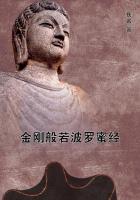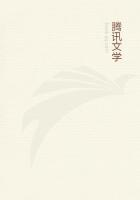I do not pretend that the spell I was under was wholly of a moral or social texture. For the most part I was charmed with him because he was a delightful story-teller; because he could thrill me, and make me hot and cold; because he could make me laugh and cry, and stop my pulse and breath at will. There seemed an inexhaustible source of humor and pathos in his work, which I now find choked and dry; I cannot laugh any more at Pickwick or Sam Weller, or weep for little Nell or Paul Dombey; their jokes, their griefs, seemed to me to be turned on, and to have a mechanical action. But beneath all is still the strong drift of a genuine emotion, a sympathy, deep and sincere, with the poor, the lowly, the unfortunate. In all that vast range of fiction, there is nothing that tells for the strong, because they are strong, against the weak, nothing that tells for the haughty against the humble, nothing that tells for wealth against poverty. The effect of Dickens is purely democratic, and however contemptible he found our pseudo-equality, he was more truly democratic than any American who had yet written fiction. I suppose it was our instinctive perception in the region of his instinctive expression, that made him so dear to us, and wounded our silly vanity so keenly through our love when he told us the truth about our horrible sham of a slave-based *******. But at any rate the democracy is there in his work more than he knew perhaps, or would ever have known, or ever recognized by his own life. In fact, when one comes to read the story of his life, and to know that he was really and lastingly ashamed of having once put up shoe-blacking as a boy, and was unable to forgive his mother for suffering him to be so degraded, one perceives that he too was the slave of conventions and the victim of conditions which it is the highest function of his fiction to help destroy.
I imagine that my early likes and dislikes in Dickens were not very discriminating. I liked 'David Copperfield,' and 'Barnaby Rudge,' and 'Bleak House,' and I still like them; but I do not think I liked them more than 'Dombey & Son,' and 'Nicholas Nickleby,' and the 'Pickwick Papers,' which I cannot read now with any sort of patience, not to speak of pleasure. I liked 'Martin Chuzzlewit,' too, and the other day I read a great part of it again, and found it roughly true in the passages that referred to America, though it was surcharged in the serious moods, and caricatured in the comic. The English are always inadequate observers;
they seem too full of themselves to have eyes and ears for any alien people; but as far as an Englishman could, Dickens had caught the look of our life in certain aspects. His report of it was clumsy and farcical;
but in a large, loose way it was like enough; at least he had caught the note of our self-satisfied, intolerant, and hypocritical provinciality, and this was not altogether lost in his mocking horse-play.
I cannot make out that I was any the less fond of Dickens because of it.
I believe I was rather more willing to accept it as a faithful portraiture then than I should be now; and I certainly never made any question of it with my friend the organ-builder. 'Martin Chuzzlewit' was a favorite book with him, and so was the 'Old Curiosity Shop.' No doubt a fancied affinity with Tom Pinch through their common love of music made him like that most sentimental and improbable personage, whom he would have disowned and laughed to scorn if he had met him in life; but it was a purely altruistic sympathy that he felt with Little Nell and her grandfather. He was fond of reading the pathetic passages from both books, and I can still hear his rich, vibrant voice as it lingered in tremulous emotion on the periods he loved. He would catch the volume up anywhere, any time, and begin to read, at the book-store, or the harness-
shop, or the law-office, it did not matter in the wide leisure of a country village, in those days before the war, when people had all the time there was; and he was sure of his audience as long as he chose to read. One Christmas eve, in answer to a general wish, he read the 'Christmas Carol' in the Court-house, and people came from all about to hear him.
He was an invalid and he died long since, ending a life of suffering in the saddest way. Several years before his death money fell to his family, and he went with them to an Eastern city, where he tried in vain to make himself at home. He never ceased to pine for the village be had left, with its old companionships, its easy usages, its familiar faces;
and he escaped to it again and again, till at last every tie was severed, and he could come back no more. He was never reconciled to the change, and in a manner he did really die of the homesickness which deepened an hereditary taint, and enfeebled him to the disorder that carried him.
off. My memories of Dickens remain mingled with my memories of this quaint and most original genius, and though I knew Dickens long before I knew his lover, I can scarcely think of one without thinking of the other.















